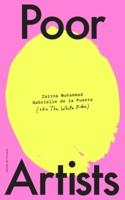Publisher's Synopsis
In 1951 the Italian-Brazilian industrialist Ciccillo Matarazzo founded the São Paulo Biennial, the second-oldest art show of its kind. From the start, it was said that the show's role model was the mother of all biennials in Venice. As is the case there, the participating countries choose artists to represent them and send them to Brazil at the countries' expense. The young Federal Republic of Germany always attributed great importance to the global art exhibition in far-away São Paulo. The German Democratic Republic was also represented from 1977 onward, although with far more modest presentations.This richly illustrated book is the first to document all of the German contributions to the thirty biennials that have taken place up to now, and examines them in the context of post-war history and cultural politics. Studies of archives in São Paulo, Berlin, and Stuttgart exhumed a cornucopia of previously unpublished documents and photographs. A number of essays describe the founding and the history of the biennial, which is closely associated with the fate of Brazilian Modernism.










